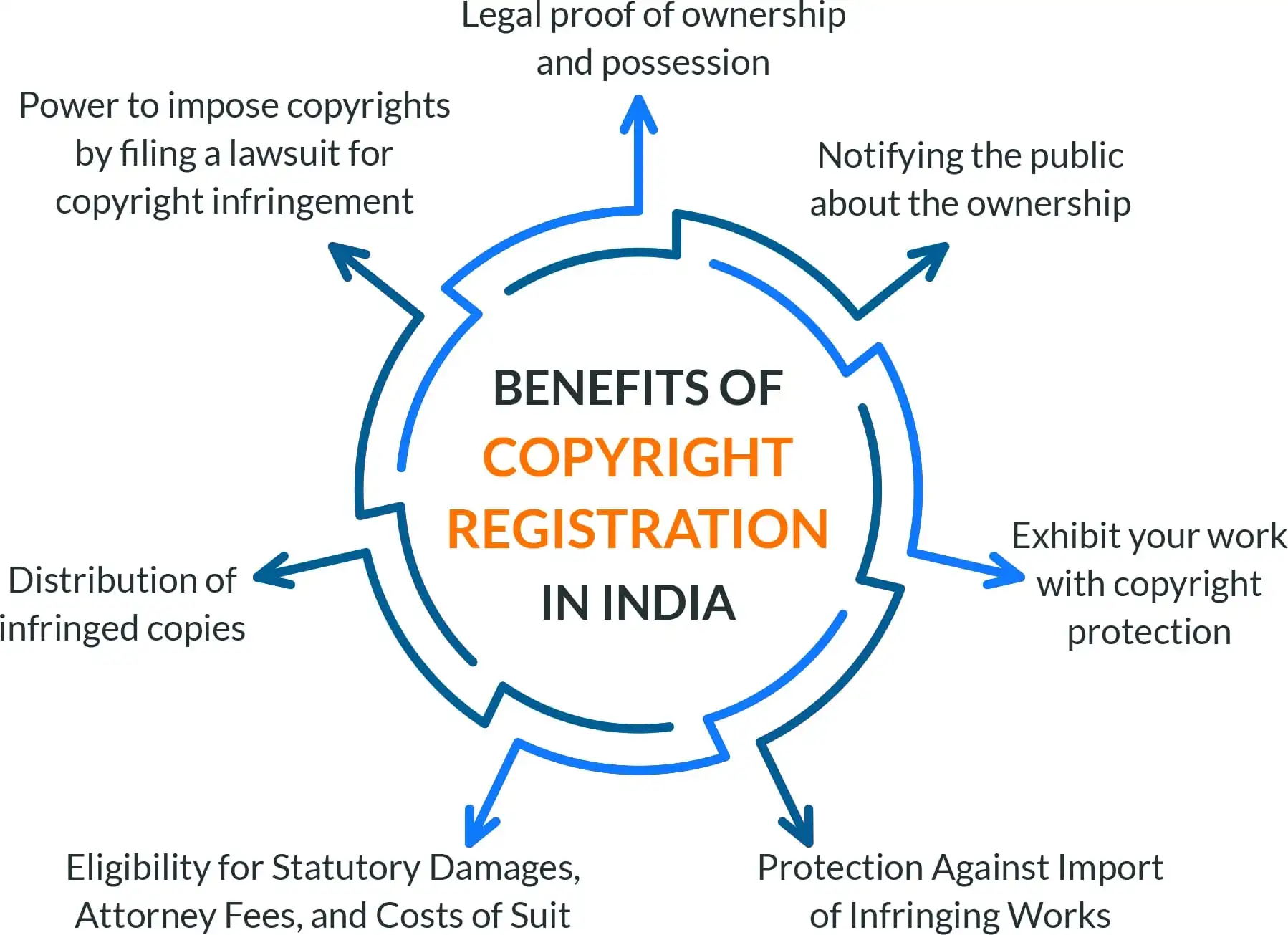Copyright Registration Process, Fees in India - Complete Guide

In order to protect intellectual property rights, people can go for registrations under various authorities. Further, when it comes to people such as artists, writers, musicians, etc., their works and creations are their most valuable assets. Additionally, it can be easily copied and reproduced, and therefore, it is essential to protect their works, whether published or unpublished. That is what copyright registration in India does!
Copyright prohibits persons, other than the copyright owner and authorized persons, from the exploitation of the original works either through reproduction, translation, public communication, or any other type of adaptation. It protects the originality of the works of writers, poets, musicians, painters, sculptors, lyricists, or any other person. It shall be remembered that copyrights protect expressions and not ideas as in the case of patents. However, what is the copyright registration process in India? Let’s find out!
How Does Copyright Protect Your Work?
The copyright owner can initiate legal proceedings against the person who infringed the copyright. Instances of copyright infringement can include:
- Public display of infringed copies
- Infringing and making copies of original work and renting or selling them
- Distribution of infringed copies for money
- Import of infringed copies etc.
Copyright registration protects your original works from such infringements and gives you absolute authority to use your works.
Copyright Registration Process in India
Following is the process for copyright registration in India:
- An application for copyright registration in India shall be filed in Form XIV. Separate applications shall be filed for registration of each type of work. The application can either be filed physically or online from the website.
- Both published and unpublished works can be applied for copyright registration. The applicant shall file and sign the application and pay the requisite copyright registration fee.
- Three copies of the published works shall be sent along with the copyright application. In the case of unpublished works, 2 copies of the manuscript shall be sent along with the copyright application. In the case of manuscripts, the applicant can even choose to send only the extracts of the work.
- After the copyright registration application is filed, a diary number shall be issued. It is followed by a waiting period of 30 days within which the examiner examines the copyright registration application. During this period, objections against the application can be raised by any aggrieved person.
- In case any objection is raised, a letter for a hearing is sent to both the applicant and the aggrieved person. Upon hearing, if the objection is rejected, then the application is processed further for discrepancies (see next step). However, if the objection is accepted, the application for copyright is rejected and the same shall be communicated to the applicant.
- In case no objection is raised, then the application is processed further. The examiner further scrutinizes the application to find any discrepancies. In case, if any discrepancy is found, the same is communicated to the applicant through a letter. The applicant is called upon for a hearing to sort out the discrepancy. However, if no such discrepancy is found, the application is processed for registration.
- For granting copyright registration in India, the registrar may require additional documents. After the registrar is satisfied with the claims made by the applicant, he will proceed to enter the copyright details in the Register of Copyrights and issue a certificate of registration.
- Once the copyright registration process is completed, the applicant is provided with the Extracts of the Register of Copyrights.

Document Checklist for Copyright Registration in India
The following are the documents required for the copyright registration process:
- 3 copies of the published work
- 2 copies of the manuscript in case of unpublished works
- Power of attorney or vakalatnama, in case the application is being filed by an attorney
- Authorization if the work is not the work of the applicant
- Details of the applicant (name, address, nationality, contact details, etc.)
- Details regarding the title and language of the work
- If the work will be used on a product, then a NOC from the trademark office
- If the applicant is a person other than the author, then a NOC from the original author
- In case a photo is appearing on the works, then a NOC from a such person whose photo is appearing
- In case the publisher is not the applicant, then a NOC from the publisher
- In the case of published works, the address and year of first publication
- Details regarding the address and years of subsequent publications
- Source code and object code in case the copyright is for a software
- Any other document as may be required
In a Nutshell
Copyrights are one of the most important intellectual properties. It protects your original works against unauthorized usage. Further, it also allows you to authorize other persons to use your copyright work subject to payment of royalty. Royalty income has been one of the major sources of income for many individuals. In case you require any assistance with respect to online copyright registration or physical in India, feel free to contact the ASC Group.
FREQUENTLY ASKED QUESTIONS
Copyrights registration validity can extend for as long as 60 years. However, it varies from case to case.
Online Copyright registration process can take anywhere between 2-3 months in India.
Following are the works for which you can obtain copyright registration in India:
- Literary works
- Musical works
- Dramatic works
- Cinematographic films
- Artistic works
- Sound recordings
Yes. A mobile app is a self-contained computer program created to perform specific tasks. Thus, the app can be registered as a computer program and an application for copyright can be filed for the same.

Leave a Reply